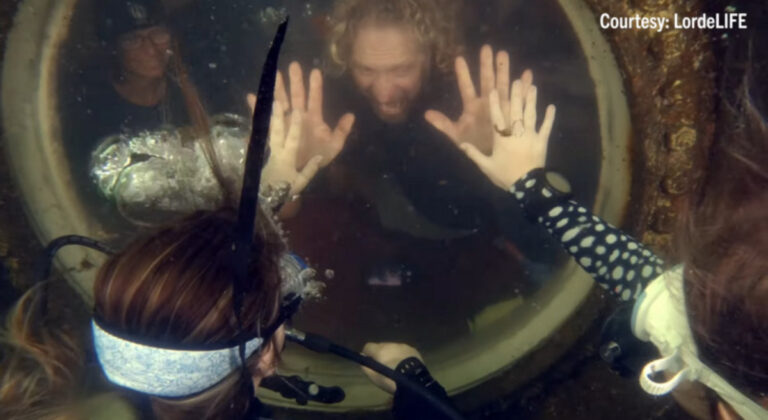In a remarkable achievement that has captivated the scientific community, an American researcher has set a new world record for living underwater. This groundbreaking feat not only highlights the potential for underwater habitation but also sheds light on the human capacity for endurance and adaptation.
The Record-Breaking Achievement
Dr. Joseph Dituri, a seasoned aquanaut and professor, has shattered the previous record by living underwater for an unprecedented duration. His underwater habitat, situated off the coast of Florida, has been his home for over 100 days, surpassing the previous record of 73 days. This ambitious project is part of a larger research initiative aimed at studying the long-term effects of underwater living on human physiology and psychology.
The Purpose Behind the Mission
The primary goal of Dr. Dituri’s underwater residence is to explore the viability of prolonged human habitation beneath the sea. By living in an environment that simulates the conditions of deep-sea habitats, he aims to gather valuable data that could inform future underwater living scenarios and space missions. This research is particularly relevant for understanding how humans can survive and thrive in isolated and confined environments.
I remember reading about underwater habitats in science fiction novels as a kid, dreaming of the day when such ideas would become a reality. Seeing Dr. Dituri’s mission unfold feels like watching those childhood fantasies come to life.
Life Underwater: Challenges and Discoveries
Living underwater for an extended period presents unique challenges. Dr. Dituri has had to adapt to the constant pressure, high humidity, and limited space of his underwater habitat. Despite these challenges, he has reported numerous benefits, such as enhanced focus and a unique sense of tranquility provided by the underwater environment.
Throughout his stay, Dr. Dituri has conducted various experiments, ranging from marine biology studies to psychological assessments. His findings have the potential to revolutionize our understanding of underwater ecosystems and the human body’s adaptability to extreme conditions.
A Reluctance to Surface
Interestingly, Dr. Dituri has expressed a reluctance to return to the surface. He has grown accustomed to the underwater lifestyle and is keen to continue his research for as long as possible. This dedication underscores his passion for the project and the potential he sees in underwater living.
Implications for the Future
The success of this mission could pave the way for more extensive underwater habitats and research stations. As climate change and overpopulation continue to challenge traditional living spaces, underwater habitation presents an innovative alternative. Additionally, the insights gained from Dr. Dituri’s research could be applied to long-duration space missions, where similar challenges of isolation and confinement exist.
During a recent science conference, I had the opportunity to hear Dr. Dituri speak about his mission. His enthusiasm was infectious, and his vision for the future of underwater living was both inspiring and thought-provoking.
Conclusion
Dr. Joseph Dituri’s record-breaking underwater residence is a testament to human ingenuity and the spirit of exploration. His achievements not only push the boundaries of what is possible but also open up new avenues for research and innovation. As we continue to explore the depths of our oceans and beyond, his pioneering work will serve as a foundation for future endeavors in underwater and space habitation.






